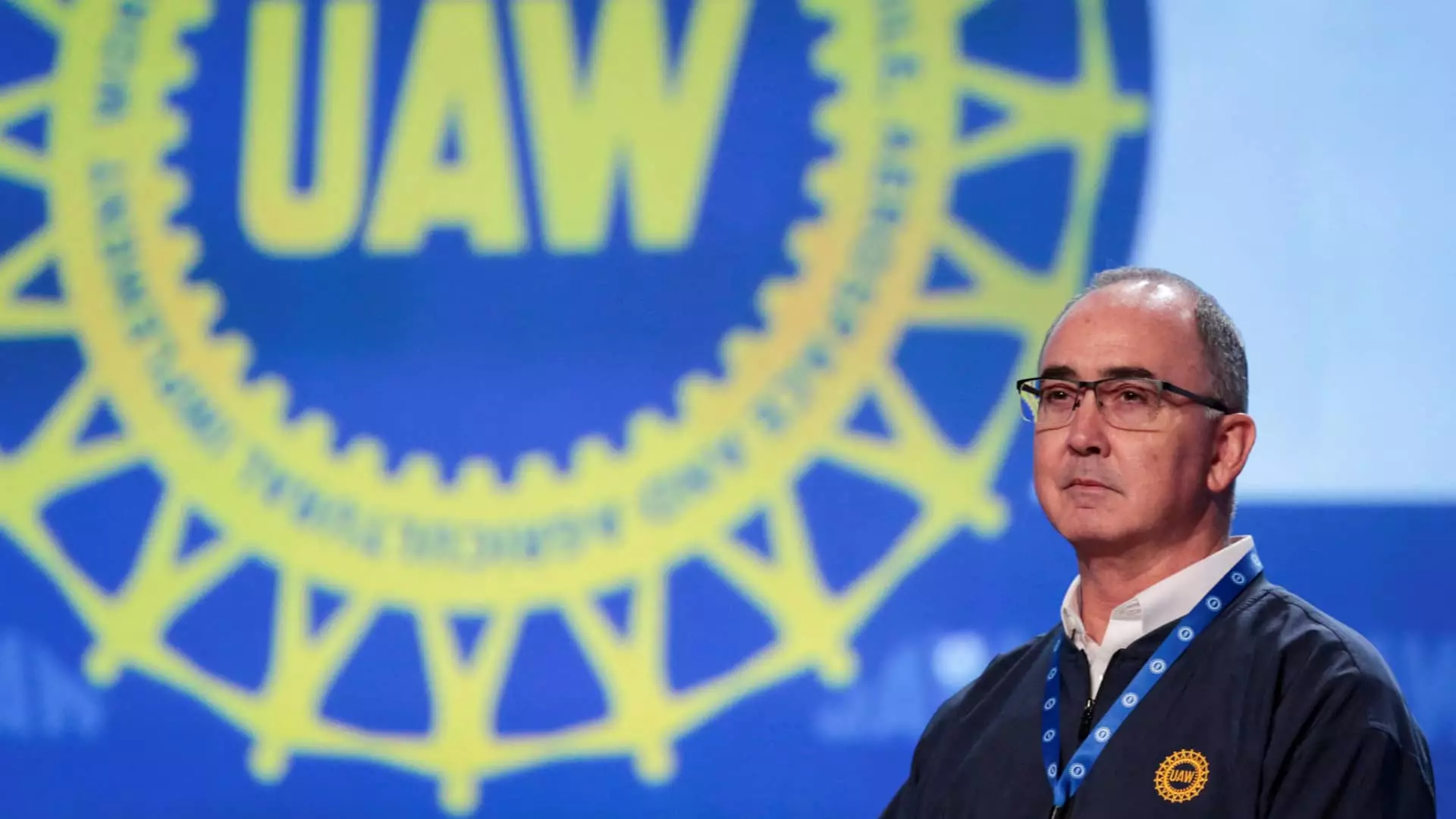United Auto Workers President Shawn Fain has recently intensified his criticism towards Stellantis CEO Carlos Tavares, accusing him of engaging in price gouging practices that detriment consumers. Fain also pointed out the alleged failure of Stellantis to uphold certain aspects of the union’s labor contract with the automaker. These accusations have sparked a heated debate between the two leaders following the contentious collective bargaining talks that took place last year between the UAW and various Detroit automakers, including Stellantis.
Fain’s remarks highlighted a significant decrease in sales and profits at Stellantis, juxtaposed with a substantial increase in CEO pay, which he attributed to Tavares. He pointed out that while other automakers such as GM and Ford were experiencing growth in auto sales, Stellantis seemed to be struggling. Fain particularly criticized Tavares for what he claimed was the company’s practice of price gouging consumers to bolster profits. Additionally, Fain accused Stellantis of not fulfilling its commitments under the existing labor contract, citing the abrupt suspension of plans to reopen an assembly plant in Illinois.
In response to Fain’s criticisms, Tavares raised quality concerns about the UAW-Stellantis workforce, specifically pointing out issues at a truck plant in metro Detroit that produces the Ram 1500 pickup truck. The company has also initiated thousands of layoffs at its U.S. plants due to declining sales and strategic product changes. Tavares emphasized the need to address operational inefficiencies at certain plants as a critical measure to enhance productivity within the company.
Since the merger between Fiat Chrysler and France’s PSA Groupe that led to the formation of Stellantis in January 2021, CEO Carlos Tavares has embarked on a cost-cutting endeavor to drive profitability. His “Dare Forward 2030” plan aims to increase revenues and profits significantly by the end of the decade. Tavares has implemented various cost-saving initiatives such as restructuring the company’s supply chain, operational processes, and reducing both salaried and hourly positions. Stellantis has downsized its workforce by approximately 47,500 employees, equivalent to a 15.5% reduction, between December 2019 and the end of 2023. This figure doesn’t incorporate the additional workforce reductions and layoffs expected to occur this year.
Despite mounting criticisms from UAW President Shawn Fain and other stakeholders, Carlos Tavares remains resolute in his cost-cutting approach. He maintains that the company’s financial challenges are necessitated by the volatile market conditions and the need for future growth and sustainability. Tavares refuted claims that Stellantis’s cost-cutting measures have directly resulted in the current operational hurdles faced by the company, reiterating the importance of adapting to the evolving automotive landscape.
The escalating criticism between the UAW and Stellantis sheds light on the complex dynamics within the automotive industry, especially in the context of labor relations and profitability pressures. Both parties have articulated their concerns and perspectives regarding critical issues such as price gouging, labor contract compliance, quality control, and workforce reductions. As the dialogue continues, the ability of UAW and Stellantis to find common ground and address these challenges collaboratively will be pivotal in shaping the future trajectory of the company and the well-being of its employees.

Leave a Reply